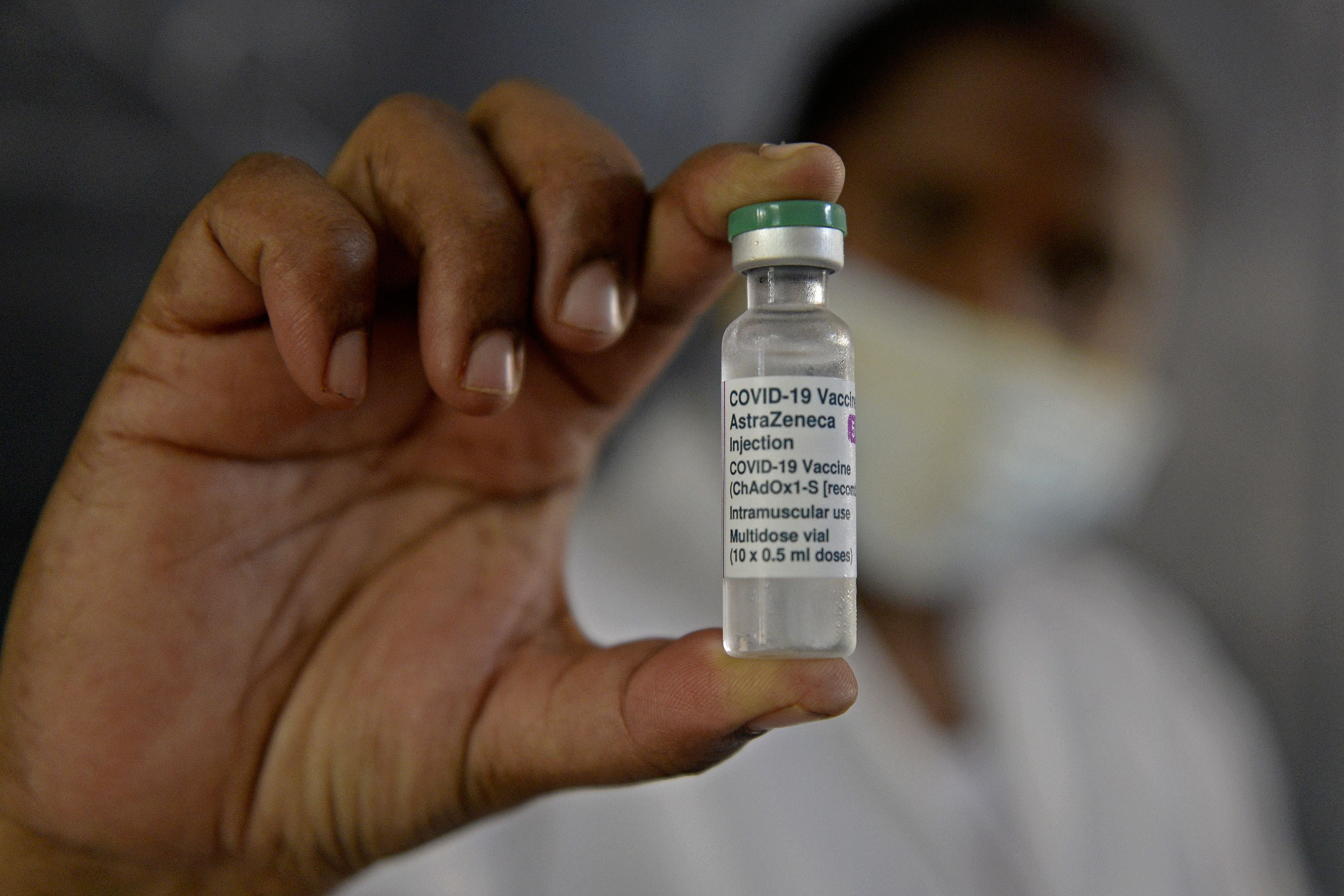India considers dropping second dose of AstraZeneca vaccine to stretch supplies, reports say
Government also said to be considering studies into the efficacy of mixing vaccines

Your support helps us to tell the story
From reproductive rights to climate change to Big Tech, The Independent is on the ground when the story is developing. Whether it's investigating the financials of Elon Musk's pro-Trump PAC or producing our latest documentary, 'The A Word', which shines a light on the American women fighting for reproductive rights, we know how important it is to parse out the facts from the messaging.
At such a critical moment in US history, we need reporters on the ground. Your donation allows us to keep sending journalists to speak to both sides of the story.
The Independent is trusted by Americans across the entire political spectrum. And unlike many other quality news outlets, we choose not to lock Americans out of our reporting and analysis with paywalls. We believe quality journalism should be available to everyone, paid for by those who can afford it.
Your support makes all the difference.The Indian government will soon begin tests to determine the effectiveness of a single dose of the Oxford-AstraZeneca Covid-19 amid a serious nationwide shortage, according to reports.
A decision on whether to go ahead will be made after the government has collected and analysed data recorded on a new app, sources told NDTV. This new app will be linked to the government’s existing digital platform CoWin and make it easier for people to flag adverse events after inoculation, it said.
India has fully vaccinated only 3 per cent of its population so far as several states have reported a shortage and suspended their vaccination drives.
The central government had this month approved extending the gap between the first and second doses of the AstraZeneca jab, manufactured locally by the Serum Institute of India and branded as “Covishield”, to 12-16 weeks. Earlier the recommended gap between the two doses was 6-8 weeks.
India now plans to review the impact of the decision to extend the interval after collecting data from the proposed new platform. This data may help the government determine whether to approve a single-dose regimen of the vaccine, sources told The Indian Express.
One source told the paper that the “argument being placed is that other viral vector vaccines have single-dose versions, and this might work for Covishield too, which started out [development] as a single-dose vaccine”.
A study by Public Health England, published on 22 May, found that three weeks after the first dose was administered, both Pfizer and AstraZeneca vaccines provided only 33 per cent effectiveness against the variant first detected in India, B.1.617.2.
The Indian government plans to ramp up its vaccination drive and has said that nearly 120 million doses of Covid-19 vaccines will be available for domestic use in June.
The Serum Institute of India will also increase production of the vaccines by nearly 40 per cent in June. A company spokesperson told Reuters that it will make 90 million doses of AstraZeneca vaccine next month from about 65 million a month currently.
The Indian government is also likely to begin tests to determine the effectiveness of mixing two different vaccines. This comes after 20 people in the Indian state of Uttar Pradesh were administered the Covishield vaccine in their first dose, but received Bharat Biotech’s Covaxin as the second dose.
A government health official said at the time that “scientifically, there is no problem” with mixing different types of vaccine.
Join our commenting forum
Join thought-provoking conversations, follow other Independent readers and see their replies
Comments